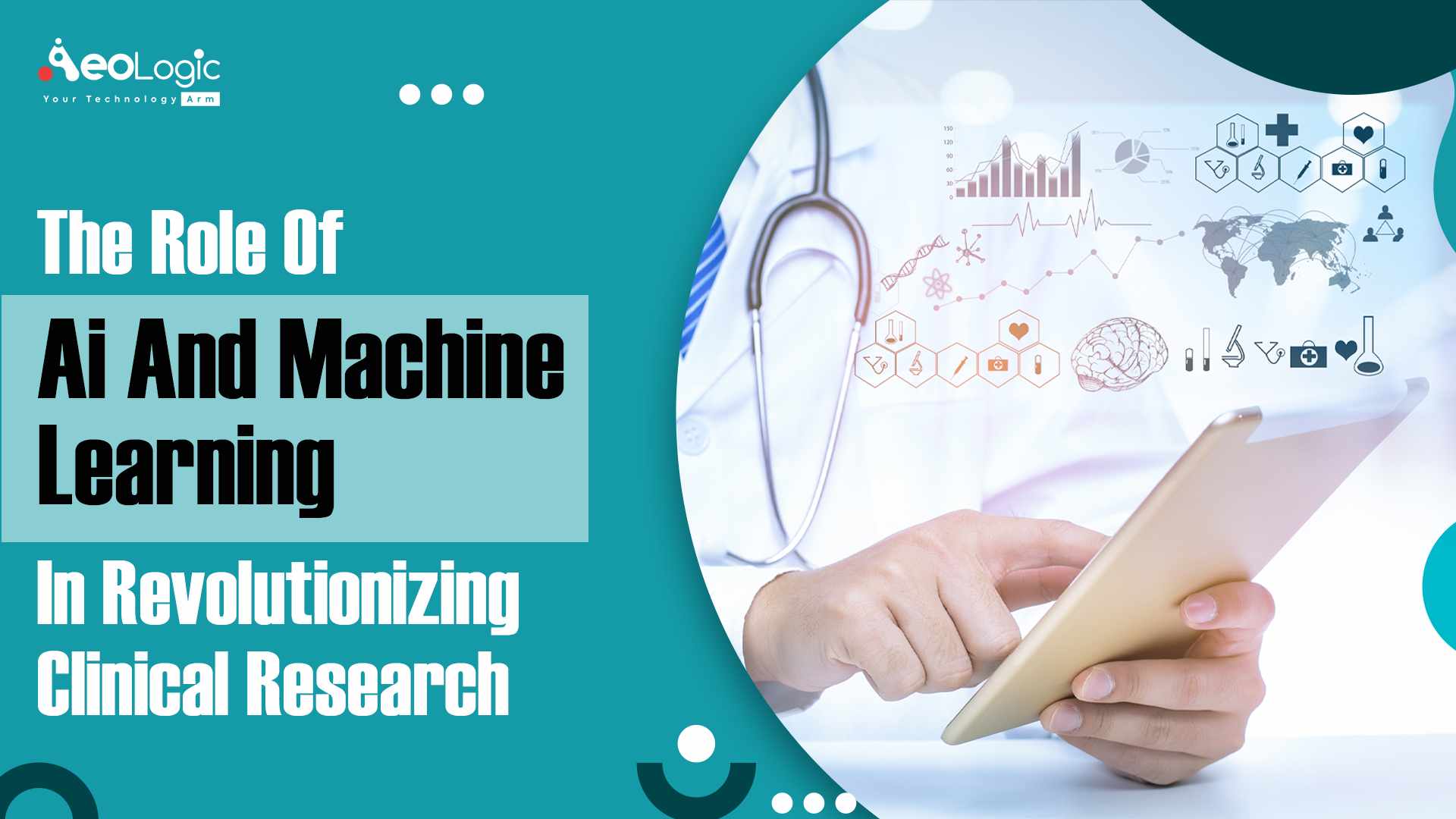The continuous evolution of technology has revolutionized many industries, businesses, and organizations. Clinical research is also revolutionizing with the implementation of advanced technologies like artificial intelligence (AI) and machine learning (ML).
In this blog, you’ll come to know the role AI and ML are playing in revolutionizing clinical research.
A Brief About AI And ML
Artificial intelligence (AI) is the key focus in most industries, and recently we have seen a lot of companies have started implementing artificial intelligence (AI) and machine learning (ML) to increase the efficiency and productivity of their businesses.
Artificial intelligence (AI) is a broad term that encompasses any computer system that simulates intelligent behavior. As a result, depending on the input, each output is pre-programmed.
Machine learning (ML) is a subset of artificial intelligence, and it’s an application where the system actually auto-learns and improves based on observing data.
Applications In Clinical Research
The following are some of the applications of artificial intelligence (AI) and machine learning (ML) that are revolutionizing clinical research:
Patient Recruitment
Patient recruitment, in which systems are built to sift through massive amounts of electronic health and medical records data and the protocol of interest to quickly identify patients who would be eligible for that protocol. As a result, recruitment times are drastically reduced.
Patient Compliance
There are several strategies for patient compliance, one of which is very similar to patient recruitment in that it is based on information to determine what data, subjects, or patients are likely to comply with your protocol. Another is a mobile phone application that monitors how you take your medication so that both you and the system know you’re on track.
Software As A Medical Device
This is frequently used when trying to guide clinical strategy or diagnose a patient with a specific indication. Image analysis, in which you input some sort of image and are able to identify and diagnose a patient with a specific disease, is one focus point on this.
Drug Discovery
In this, we’re looking to identify treatments that are targeted to the specific biologics of different diseases.
Simplifying The Complex Healthcare Structure
Over the past years, the evolution of technology has led to accelerating the stages of research. As a result, these technologies created complex data environments.. Data is critical in every industry, and with the rapid expansion of healthcare over the last few decades, the amount of information has also grown significantly. This has resulted in clinical research outpacing the traditional data management process, which includes both structured and unstructured data generated in massive quantities in terms of volume, variety, and velocity.
Since the data is generated through multiple sources, it becomes very tough to manually maintain. In order to standardize the quality control of data, the healthcare industry started implementing AI and ML technologies. As promising as these technologies look, over the past few years they have also proven highly beneficial for maintaining complex data and automating it. Thus, artificial intelligence (AI) and machine learning (ML) result in reducing the excess burden on clinical research by minimizing human interventions.
The Use Of Artificial Intelligence (AI) and Machine Learning (ML) Will Replace Humans From Clinical Research?
This question is very natural to rise in one’s head, and the answer to this is also quite simple. The goal of implementing artificial intelligence (AI) and machine learning (ML) is to increase the efficiency, effectiveness, and productivity of humans rather than to completely replace them. A few years back, when there were no such technologies to automate the tasks involved in clinical research, people released the need for automation so they could excel more in their research. This has become possible with the continuous advancement of technology. With the integration of both humans and machines (technology), data scientists will flourish in the coming future as artificial intelligence (AI) and machine learning (ML) lead significantly in reducing the burden and simplifying the complexity involved in clinical research.
Conclusion
To sum up, undoubtedly the implementation of advanced technologies like artificial intelligence (AI) and machine learning (ML) the healthcare industry will witness a revolution like never before. A revolution that will uplift clinical development in the most phenomenal way possible. A revolution that will give plenty of benefits for the coming generations. Clinical research is very important and to support this essential task the implementation of artificial intelligence (AI) and machine learning (ML) is a go-to solution.
Are you looking to implement artificial intelligence (AI) and machine learning (ML) into your clinical development? If yes, so, please feel free to contact us at support@aeologic.com

Manoj Kumar is a seasoned Digital Marketing Manager and passionate Tech Blogger with deep expertise in SEO, AI trends, and emerging digital technologies. He writes about innovative solutions that drive growth and transformation across industry.
Featured on – YOURSTORY | TECHSLING | ELEARNINGINDUSTRY | DATASCIENCECENTRAL | TIMESOFINDIA | MEDIUM | DATAFLOQ






